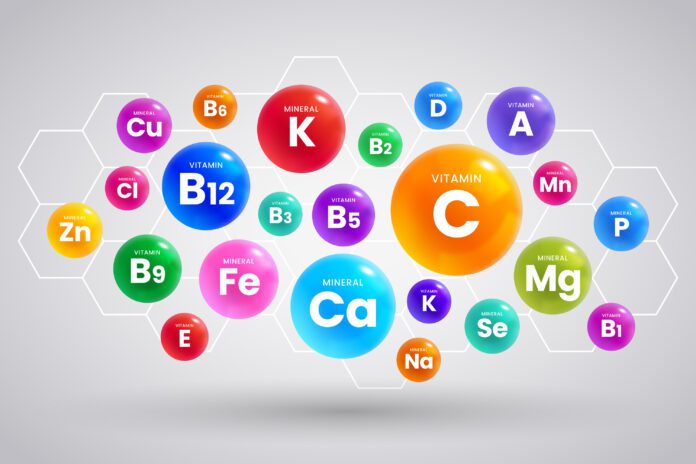Eating a balanced and nutrient-dense diet is crucial for maintaining optimal health and well-being. Every morsel of food you consume is more than just a taste experience – it’s a complex blend of nutrients that your body craves. In this article, we delve into the fascinating world of the nutrient matrix, uncovering the valuable offerings of the foods you enjoy.
The Power of Nutrient Density
When it comes to selecting foods for your meals, aiming for nutrient density is a game-changer. Nutrient density refers to the concentration of essential vitamins, minerals, and other beneficial compounds within a given portion of food. Choosing foods that pack a nutritional punch per bite can greatly enhance your overall health.
Vitamins: Nature’s Multivitamins
Vitamins are like the alphabet of nutrition – each one playing a unique role in supporting various bodily functions. From vitamin A that promotes healthy vision to vitamin D that strengthens your bones, these compounds are your body’s best friends. Leafy greens, vibrant fruits, and wholesome dairy are fantastic sources of these essential vitamins.
Minerals: The Building Blocks of Wellness
Minerals are the unsung heroes that lay the foundation for a well-functioning body. Calcium keeps your bones sturdy, iron ensures your blood carries oxygen efficiently, and potassium helps maintain a healthy heart rhythm. Incorporating nuts, seeds, lean meats, and whole grains into your diet can help you meet your mineral needs effectively.
Proteins: The Body’s Building Bricks
Proteins are the construction workers of your body – they build and repair tissues, produce enzymes, and even contribute to immune function. Fish, poultry, eggs, legumes, and tofu are excellent sources of protein that should make regular appearances on your plate.

Fats: The Essential Energy Reserves
Fats often get a bad rap, but they are essential for your well-being. They cushion your organs, provide a long-lasting energy source, and help absorb fat-soluble vitamins. Avocados, olive oil, nuts, and fatty fish are rich in heart-healthy fats that deserve a place in your diet.
Fiber: Nature’s Broom for Digestion
Fiber is your digestive system’s best friend. It keeps things moving smoothly, prevents constipation, and supports a healthy gut microbiome. Whole grains, fruits, vegetables, and legumes are high-fiber choices that can contribute to your daily well-being.
Antioxidants: Nature’s Defense System
Antioxidants are the superheroes that protect your cells from damage caused by harmful molecules called free radicals. Berries, colorful vegetables, and green tea are brimming with antioxidants, helping you maintain vibrant health.
Hydration: The Elixir of Life
Water is the unsung hero of the nutrient world. Staying adequately hydrated is crucial for every bodily function – from regulating body temperature to aiding digestion. Make water your beverage of choice and infuse it with fruits or herbs for added flavor.
Transitioning to Nutrient-Rich Choices
Transitioning to a diet rich in essential nutrients doesn’t have to be daunting. Start by making small, sustainable changes. Swap sugary snacks for fresh fruits, opt for whole grains instead of refined grains, and experiment with new recipes that incorporate a variety of nutrient-packed ingredients.
Embracing Nutritional Awareness
In our fast-paced world, it’s easy to overlook the importance of nutritional awareness. However, taking a moment to understand the impact of your food choices can have lasting benefits. By incorporating nutrient-dense foods into your diet, you’re providing your body with the tools it needs to thrive.
The Art of Meal Planning
Crafting a balanced meal plan is akin to creating a masterpiece. Think of your plate as a canvas, and each ingredient as a stroke of color. Incorporate a variety of vitamin-rich vegetables, lean protein sources, and wholesome grains to ensure you’re covering all nutritional bases.
Navigating the Grocery Aisles
As you walk down the grocery aisles, keep an eye out for products that boast terms like “high in fiber,” “packed with antioxidants,” and “a good source of essential nutrients.” These labels often indicate that the item aligns with your nutritional goals.
Mindful Eating for Enhanced Wellness
Beyond the nutritional content of your food, practicing mindful eating can further enhance your overall well-being. Take time to savor each bite, appreciate the flavors, and recognize the nourishment you’re providing your body. This mindful approach can lead to better digestion and a healthier relationship with food.
Staying Hydrated Throughout the Day
As you focus on improving your diet, don’t forget the importance of staying hydrated. Aim to drink water consistently throughout the day. Keep a reusable water bottle handy to remind yourself to sip regularly and maintain optimal hydration levels.
The Continuous Journey to Health
Embarking on a journey towards better health is not a one-time event; it’s a continuous process. By consistently incorporating nutrient-rich choices into your meals, you’ll notice positive changes in your energy levels, mood, and overall vitality.
Empowering Your Food Choices
Educate yourself about the nutritional profiles of different foods. As you become more informed, you’ll be empowered to make better food choices. This knowledge allows you to tailor your meals to your specific needs, whether you’re seeking to boost your immunity with antioxidants or support your fitness journey with ample protein.
Seeking Professional Guidance
If you’re unsure about how to create a well-rounded and nutrient-packed meal plan, consider seeking guidance from a registered dietitian or nutritionist. These professionals can provide personalized recommendations based on your lifestyle, preferences, and health goals.
A Brighter, Healthier Future
As you continue your voyage towards embracing a nutrient-rich lifestyle, remember that every positive choice you make contributes to a brighter, healthier future. Your body is a remarkable vessel that deserves the best care. By nurturing it with the right Nutrient Matrix, you’re investing in a life of vibrancy and longevity.
In conclusion, your food choices play a significant role in shaping your overall health. By understanding the nutrient matrix and selecting foods that offer a diverse range of vitamins, minerals, proteins, fats, and other essential compounds, you can embark on a journey towards vitality and well-being. Remember, every bite is a step towards a healthier you!
So, are you ready to unlock the potential of your food and embrace a life of wellness? Start today, and your body will thank you for years to come.
FAQ’s
1. What does “nutrient density” mean?
Nutrient density refers to the concentration of essential nutrients – such as vitamins, minerals, proteins, and fiber – in a given portion of food. Foods with high nutrient density provide a greater amount of beneficial compounds compared to their calorie content.
2. How can I ensure I’m getting enough vitamins and minerals?
Incorporate a variety of colorful fruits and vegetables into your diet. Each hue signifies a different set of nutrients. Also, consider including lean proteins, whole grains, and sources of healthy fats to ensure you’re covering a wide range of essential nutrients.
3. Are all fats bad for you?
No, not all fats are bad. Healthy fats, such as those found in avocados, nuts, seeds, and olive oil, are essential for various bodily functions. These fats support heart health, brain function, and the absorption of fat-soluble vitamins.
4. How can I increase my fiber intake?
Choose whole grains like quinoa, brown rice, and whole wheat bread over refined grains. Consume plenty of fruits, vegetables, and legumes, which are rich in dietary fiber. These choices can promote digestive health and help you feel full longer.
5. What role do antioxidants play in my diet?
Antioxidants are compounds that help protect your cells from damage caused by free radicals. These unstable molecules can contribute to aging and various diseases. By consuming foods rich in antioxidants, such as berries, leafy greens, and nuts, you can support your body’s defense system.
6. How can I transition to a nutrient-rich diet?
Start by making small changes. Gradually swap unhealthy snacks for whole fruits or nuts. Opt for lean protein sources like chicken or tofu, and choose whole grains over refined options. Experiment with new recipes that incorporate nutrient-dense ingredients.
7. Can I meet my nutritional needs without meat?
Absolutely. There are plenty of plant-based sources of protein, such as beans, lentils, quinoa, and nuts. To ensure you’re getting a variety of nutrients, focus on including a diverse array of vegetables, whole grains, and plant-based proteins in your meals.
8. What’s the importance of staying hydrated?
Staying hydrated is essential for maintaining bodily functions. Water helps regulate body temperature, aids in digestion, and supports nutrient transportation. Aim to drink water consistently throughout the day to stay properly hydrated.
9. How can I practice mindful eating?
Mindful eating involves paying full attention to your eating experience. Eat slowly, savor each bite, and listen to your body’s hunger and fullness cues. Avoid distractions, such as screens, while eating to fully appreciate the flavors and textures of your food.
10. Can a nutrient-rich diet prevent certain health conditions?
While no diet can guarantee prevention, a nutrient-rich diet can certainly contribute to overall health and potentially lower the risk of chronic diseases. By providing your body with the right nutrients, you’re creating a foundation for well-being.
Remember that everyone’s nutritional needs are unique. It’s always a good idea to consult with a healthcare professional or registered dietitian to receive personalized advice based on your specific health goals and requirements.


